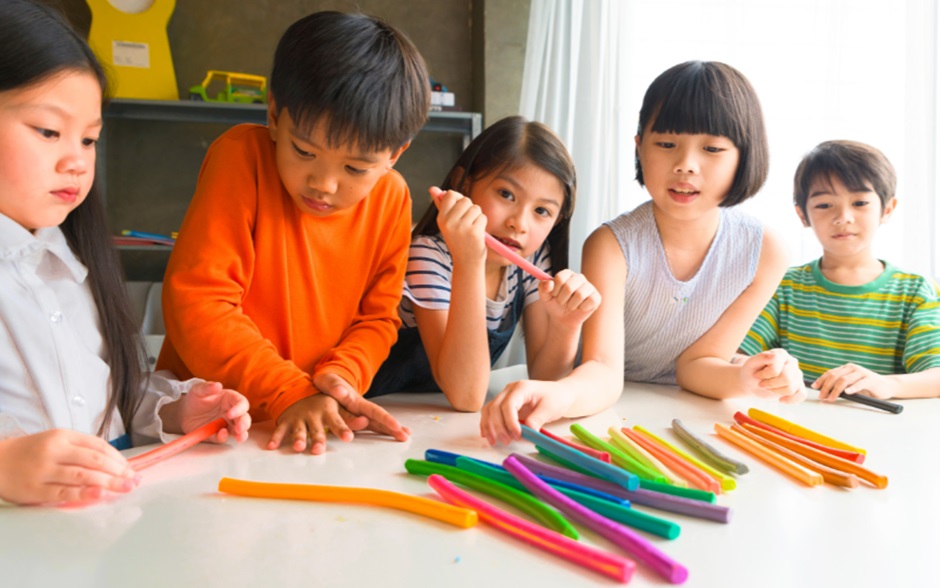Parenting is a journey filled with choices and decisions. One critical decision is enrolling your child in a playgroup, particularly for parents considering preschool in Singapore. The concept of playgroup preschool can be misunderstood, leading to several common misconceptions. Here, we demystify these misconceptions to help parents make informed decisions.
Misconception 1: Playgroup is Just Playtime
One of the most prevalent misconceptions about playgroups for preschool is that it is merely a period of unstructured play. While play is indeed a fundamental aspect, playgroups are designed with a purpose. The activities are structured to promote various developmental milestones. From cognitive skills to social interaction, playgroup activities are curated to provide a balanced learning environment. In a playgroup preschool, play is the medium through which essential learning happens, fostering creativity, problem-solving, and communication skills.
Misconception 2: Playgroups Are Not Educational
Another common misunderstanding is that playgroups do not offer educational value. This could not be further from the truth. Playgroup preschool in Singapore integrates educational elements into play. Through storytelling, songs, and interactive activities, children develop foundational skills in literacy and numeracy. The educational framework of playgroups ensures that children are engaged in meaningful learning experiences. By incorporating basic educational concepts into play, children can grasp complex ideas in a simplified and enjoyable manner.
Misconception 3: Playgroup is Not Necessary for Preschool
Some parents believe that playgroups are an optional prelude to preschool and not a necessity. However, playgroups serve as an important stepping stone to formal education. They prepare children for the structured environment of preschool. Attending a playgroup preschool helps children get accustomed to routines, follow instructions, and develop independence. The transition from home to a more formal setting becomes smoother when children have experienced the intermediate stage of a playgroup. This early adaptation helps in reducing anxiety and builds confidence in young learners.
Misconception 4: All Playgroups Are the Same
A widespread misconception is that all playgroups offer the same experience. In reality, the quality and approach of playgroups can vary significantly. Parents must research and visit multiple playgroups to find one that aligns with their educational philosophy and meets their child’s needs. In Singapore, playgroup preschools offer diverse curricula and teaching methods. From Montessori to Reggio Emilia approaches, the choices are varied. Parents should consider factors like teacher qualifications, child-to-teacher ratios, and the overall environment when choosing a playgroup.
Misconception 5: Playgroups Are Expensive and Unaffordable
Many parents assume that playgroup preschools in Singapore are prohibitively expensive. While it is true that costs can vary, there are numerous options available to suit different budgets. Some playgroups offer flexible payment plans and financial assistance. It’s important to weigh the costs against the benefits. Investing in a quality playgroup can provide a strong foundation for your child’s future learning. Additionally, the skills and social interactions gained at this stage are invaluable.
Misconception 6: Playgroups Are Only for Stay-at-Home Parents
Another false belief is that playgroups are only beneficial for children of stay-at-home parents. However, playgroups can be advantageous for all families. For working parents, playgroups provide a structured environment where children can engage with peers and participate in developmental activities. This ensures that children receive consistent stimulation and socialisation, which are crucial for their growth. Playgroup preschools in Singapore offer flexible timings to accommodate the schedules of working parents, making it a viable option for everyone.
Misconception 7: Children Need to Be Potty-Trained
The belief that children must be potty-trained before attending playgroups is another misconception. Many playgroup preschools in Singapore understand that children develop at different rates and do not require them to be potty-trained. They provide support and assistance in this area, making the environment comfortable for children still mastering this skill. The focus is on creating a stress-free, supportive environment where children can learn and grow at their own pace.
Misconception 8: Playgroups Are Too Stressful for Young Children
Some parents worry that playgroups might be too stressful for young children. On the contrary, playgroups are designed to be nurturing and supportive. The activities are age-appropriate and tailored to the developmental stages of the children. The environment is created to be engaging and fun, reducing any potential stress. Playgroup preschools in Singapore are staffed with trained professionals who understand child psychology and development, ensuring that each child’s experience is positive and enriching.
Discover the benefits of a well-rounded playgroup preschool for your child. Visit EtonHouse to explore how our programs in Singapore can provide the perfect start for your child’s educational journey.

